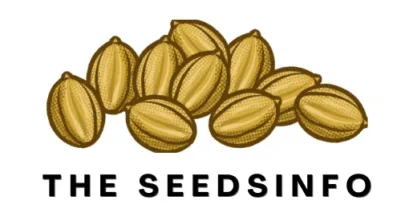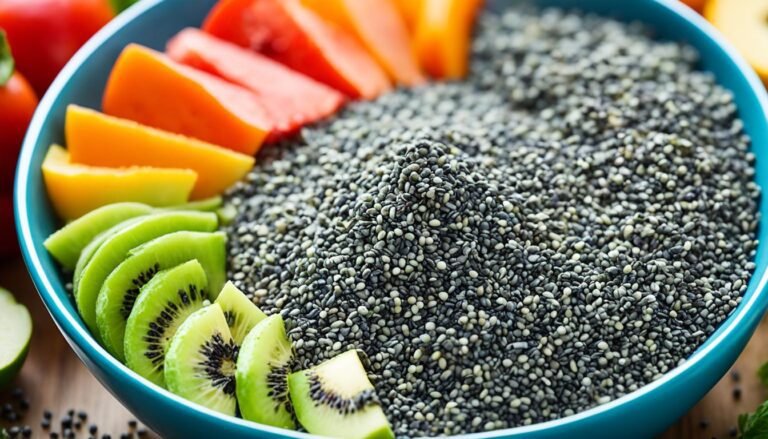Discover the Health Benefits of Cinnamon Today

Did you know a single teaspoon of cinnamon has 1.6 grams of fiber? This spice comes from the inner bark of certain trees. It has been used in traditional medicine for thousands of years. Now, it’s known for its health benefits.
Cinnamon is not just for flavor. It’s full of antioxidants, anti-inflammatory compounds, and more. This article will show you how adding cinnamon to your diet can boost your health. Get ready to see how this spice can improve your well-being.
Key Takeaways
- Cinnamon is a potent source of antioxidants and anti-inflammatory compounds.
- It has been shown to help regulate blood sugar levels, especially in individuals with type 2 diabetes.
- Cinnamon can assist in lowering cholesterol and supporting heart health.
- The spice may potentially aid in weight loss by reducing the negative effects of high-fat foods.
- Cinnamon contains antimicrobial and antiviral properties, making it a versatile addition to your diet.
What is Cinnamon?
Cinnamon comes from the inner bark of evergreen trees. It’s a spice that people have loved for centuries. It’s known for its strong smell, warm taste, and health benefits.
There are many types of cinnamon, each with its own special traits. Let’s look at the main kinds you’ll find.
Types of Cinnamon
The main types are cassia cinnamon and Ceylon (or “true”) cinnamon. Cassia cinnamon is the usual type in the U.S. It has a strong, rich flavor. Ceylon cinnamon is used more in other countries and tastes milder and sweeter.
- Cassia Cinnamon: This comes from the Cinnamomum cassia tree. It’s the most common and affordable cinnamon. It tastes robust, a bit sweet, and slightly bitter.
- Ceylon Cinnamon: Known as “true” cinnamon, it’s from the Cinnamomum verum tree. Ceylon cinnamon smells better and tastes milder and sweeter than cassia. It’s pricier and less common in some places.
Both cassia and Ceylon cinnamon are good for you, but they’re not the same. Cassia has more coumarin, which can be bad in big amounts. Ceylon cinnamon has less coumarin, so it’s safer to eat often.
Cinnamon is a versatile spice that adds warmth and depth to food. Try different types to find your favorite and enjoy its amazing benefits.
Cinnamon is Rich in Antioxidants
Cinnamon is a health superstar. It’s known for its high antioxidant content. These antioxidants, especially polyphenols, protect the body from damage by free radicals.
Cinnamon’s antioxidants are so strong, it can be used as a natural food preservative. Just 1.5 grams of cinnamon a day can boost blood antioxidants and lower inflammation markers like C-reactive protein.
Cinnamon’s antioxidants help with many health benefits. They support heart health and may fight cancer. By fighting free radicals, cinnamon can reduce chronic disease risk and improve well-being.
| Nutrient | Amount per Teaspoon (3 g) |
|---|---|
| Calories | 7 kcal |
| Protein | 0.1 g |
| Carbohydrates | 2 g |
| Fiber | 1.6 g |
Adding more cinnamon to your diet can boost antioxidants and support health. Sprinkle it on oatmeal, in baked goods, or take supplements. Cinnamon’s antioxidants make it a top wellness spice.

Anti-Inflammatory Properties of Cinnamon
Cinnamon is not just a tasty spice; it’s also a powerful anti-inflammatory. Its antioxidants help reduce inflammation in the body. This is key because chronic inflammation can lead to many diseases as we age. Studies show that cinnamon can lower inflammation markers like C-reactive protein, which is good for health.
Cinnamon’s anti-inflammatory effects come from compounds like cinnamaldehyde, eugenol, and cinnamic acid. These substances help control inflammation in the body. This can lessen the harm caused by long-term inflammation.
In a study by Altschuler et al. (2007), cinnamon helped lower A1C levels in teens with type 1 diabetes. Research by Blevins et al. (2007) and Khan et al. (2003) showed cinnamon can improve glucose and lipid levels in type 2 diabetes patients.
Cinnamon’s anti-inflammatory effects could help prevent many age-related diseases. These include heart disease, cancer, and neurodegenerative conditions. Adding cinnamon to your diet or supplements could be a smart move for your health.
| Compound | Key Benefits |
|---|---|
| Cinnamaldehyde | Anti-inflammatory, antimicrobial, and antioxidant properties |
| Eugenol | Powerful anti-inflammatory and analgesic (pain-relieving) effects |
| Cinnamic Acid | Exhibits anti-inflammatory, antioxidant, and neuroprotective activities |
Cinnamon’s anti-inflammatory and antioxidant benefits make it great for health-conscious diets or supplements. Adding this spice to your daily routine can help support your body’s defenses and improve your long-term health.
health benefits of cinnamon
Cinnamon is more than just a spice. It has been valued for its health benefits for thousands of years. Today, science backs up its amazing effects on health. It can help control blood sugar, protect the heart, and fight diseases of the brain.
Cinnamon’s power comes from cinnamaldehyde, the compound that gives it its taste and smell. Eating cinnamon often can make insulin work better, lower cholesterol, and reduce inflammation.
Cinnamon’s Antioxidant and Anti-inflammatory Powers
Cinnamon is full of antioxidants, which fight off harmful free radicals and protect cells. A study by Hong JW et al. (2012) showed that cinnamon water extract has strong anti-inflammatory effects. Its anti-inflammatory traits come from essential oils and compounds like cinnamaldehyde, as found by Tung YT et al. (2008).
Cinnamon and Cardiovascular Health
Cinnamon also helps the heart and blood vessels. A study by Song F et al. (2013) found that cinnamon’s compounds protect the heart from damage. Research by Alvarez-Collazo J et al. (2014) showed that cinnamaldehyde can help control blood pressure and heart health by affecting calcium channels.
Cinnamon and Blood Sugar Management
Cinnamon is known for its role in managing blood sugar. The study by Allen RW et al. (2013) found that cinnamon can lower blood sugar, triglycerides, and bad cholesterol in type 2 diabetes patients. It’s great for people with prediabetes or metabolic syndrome because it makes insulin work better.

Cinnamon is a great addition to any diet because of its many health benefits. It can help with blood sugar, heart health, and overall well-being. Always talk to your doctor before changing your diet or adding new supplements.
Antimicrobial and Antiviral Effects
Cinnamon is packed with compounds like cinnamaldehyde that fight off microbes and viruses. Studies show it has strong antioxidants and antihemolytic effects. This makes it great against many harmful germs.
Cinnamon stops harmful bacteria like Listeria and Salmonella from growing. It also fights fungi that cause lung infections. Plus, it can prevent cavities and bad breath.
Antibacterial and Antifungal Properties
Cinnamon doesn’t just fight bacteria. It also targets fungi that cause infections. Researchers think cinnamon could help fight antibiotic-resistant infections too. It might even break down tough bacterial biofilms.
Cinnamon’s active compound, cinnamaldehyde, is key to its fight against germs. It can break down bacterial biofilms in most cases. This could help stop infections from spreading.
Scientists are still studying how cinnamon can help fight infections. They’re looking for new ways to use cinnamon to tackle antibiotic resistance. This could lead to more natural ways to fight infections.
Potential Cancer-Fighting Properties
Research is still in early stages, but studies suggest cinnamon could fight cancer. Cinnamon extracts might slow down cancer cell growth and stop new blood vessels from forming in tumors.
A study on mice showed that cinnamaldehyde, a key part of cinnamon, stopped cancer proteins from working. Cinnamon extract also killed cancer cells in different types of tumors, like lymphoma and colorectal cancer.
Cinnamon might work against cancer by changing important cell signals and causing cancer cells to die. Cinnamon extract triggers cell death in cancer cells, showing it could be a natural way to fight cancer.
While these results are encouraging, we need more human studies to fully understand cinnamon’s role in cancer prevention and treatment. Still, eating cinnamon or taking cinnamon-based supplements could help keep you healthy and might lower cancer risk.
Blood Sugar Regulation
Cinnamon is known for its power to control blood sugar levels. It does this by slowing down the breakdown of carbs, making insulin work better, and acting like insulin itself. Many studies show that cinnamon can lower blood sugar levels and help manage it over time.
The right amount of cinnamon to take is between 1-6 grams, or about 0.5-2 teaspoons, each day. For example, one study found cinnamon could lower blood sugar by up to 52.2 mg per deciliter for people with type 2 diabetes. Another study with 80 people with PCOS showed that 1.5 grams of cinnamon daily for 12 weeks reduced insulin levels and improved insulin sensitivity.
Not all cinnamon is the same. Ceylon cinnamon has more antioxidants than Cassia cinnamon, which might offer better health benefits. But, Cassia cinnamon has more coumarin, which can be bad in large doses. The European Food Safety Authority says it’s safe to have up to 0.045 mg of coumarin per pound daily. For a 165-pound person, that’s about half a teaspoon of Cassia cinnamon.
| Cinnamon Type | Antioxidant Content | Coumarin Content |
|---|---|---|
| Ceylon Cinnamon | Higher | Lower |
| Cassia Cinnamon | Lower | Higher |
If you want to use cinnamon to help with blood sugar, talk to your doctor first. They can tell you the right amount and type of cinnamon for you. Adding cinnamon to your daily life can be a good way to manage your blood sugar and support your health.

Heart Health Benefits
Cinnamon is known for its heart health benefits and can help lower the risk of heart disease. This is the leading cause of death worldwide. Studies show that taking at least 1.5 grams of cinnamon daily can improve cholesterol and blood pressure levels.
Cholesterol and Blood Pressure Lowering
Research has found that cinnamon can lower triglycerides, total cholesterol, and LDL (bad) cholesterol. These are key risk factors for heart disease. A study looked at 10 studies and found cinnamon can help lower blood sugar in people with type 2 diabetes.
Cinnamon also helps with blood pressure. Just 120 milligrams of cinnamon a day for 12 weeks can lower blood pressure. Its anti-inflammatory effects may also help by improving blood flow and easing the heart’s workload.
| Cinnamon Benefits for Heart Health | Research Findings |
|---|---|
| Cholesterol Lowering | Reduces triglycerides, total cholesterol, and LDL (bad) cholesterol |
| Blood Pressure Reduction | Consuming 120 mg of cinnamon daily for 12 weeks can significantly lower blood pressure |
| Improved Glucose Control | Lowers fasting glucose levels in people with type 2 diabetes when taken in doses of 120 mg to 6 g per day |
| Anti-Inflammatory Effects | Cinnamic acid helps improve blood flow and reduces strain on the heart |
Cinnamon’s benefits can help prevent heart disease. Adding cinnamon to your diet or taking supplements can support your heart health.

Brain Health and Neurodegenerative Disease
Cinnamon is more than just a tasty spice; it’s a powerhouse for brain health. It fights against Alzheimer’s and Parkinson’s diseases. The spice’s compounds can stop the tau protein buildup, a key sign of Alzheimer’s.
A study looked at 40 studies on cinnamon and brain function. It found cinnamon boosts learning and memory. This was seen in both human studies and animal tests, showing cinnamon’s brain benefits.
One study showed that chewing cinnamon gum helped teens remember better after 40 days. Other studies found that cinnamon’s parts like eugenol, cinnamic acid, and cinnamaldehyde protect brain cells. They stop amyloid-beta production, reduce inflammation, and prevent cell death, which keeps the brain working well.
| Cinnamon Compound | Neuroprotective Effects |
|---|---|
| Cinnamaldehyde | Anti-cell death, anti-inflammatory |
| Trans-cinnamaldehyde | Anti-cell death, anti-inflammatory |
| Eugenol | Cognitive benefits |
| Cinnamic acid | Cognitive benefits |
While the results look good, we need more research. Most studies were on animals. We need more human trials to see how cinnamon helps us. Also, choose the right kind of cinnamon, as some types can be harmful if eaten too much.

The research on cinnamon and brain health is exciting. Adding cinnamon to your meals could help your brain stay sharp and lower the risk of diseases. Always talk to your doctor before trying new foods or supplements.
Nutritional Value of Cinnamon
Cinnamon is a spice loved for its warm, aromatic taste. But it’s more than just a flavor enhancer. It’s packed with nutrients that support your health.
A teaspoon of ground cinnamon has only 6 calories and 2 grams of carbs. It’s a great way to add flavor without adding calories. It also offers trace vitamins and minerals like calcium, iron, magnesium, phosphorus, and potassium.
Cinnamon is full of antioxidants like catechins and procyanidins. These help fight off harmful free radicals and reduce inflammation. In fact, cinnamon is among the top spices for antioxidants.
| Nutrient | Amount per Teaspoon |
|---|---|
| Calories | 6 |
| Carbohydrates | 2 g |
| Fiber | 1 g |
| Calcium | 29 mg |
| Iron | 0.14 mg |
| Magnesium | 3 mg |
| Phosphorus | 4 mg |
| Potassium | 11 mg |
Cinnamon may not be a big source of nutrients, but it’s full of antioxidants and trace minerals. Adding it to your diet can boost your health. Sprinkle it on oatmeal, mix it into coffee, or season dishes with it. Cinnamon is a simple way to improve your nutritional profile and support your health.

Conclusion
Cinnamon is a spice that’s both tasty and full of health benefits. It has antioxidants and anti-inflammatory properties. These can help with blood sugar, heart health, and brain function. Adding cinnamon to your daily life can be a great way to boost your health.
You can enjoy cinnamon in your cooking or take it as a supplement. It can help lower the risk of heart disease and diabetes. It may also ease menstrual symptoms and support bone health.
Remember to eat cinnamon in moderation and follow the recommended daily amount. This way, you can enjoy its many health benefits without any side effects. By adding cinnamon to your diet, you’re taking a step towards a healthier life.
FAQ
What are the health benefits of cinnamon?
Cinnamon is full of antioxidants and has anti-inflammatory properties. It can help control blood sugar, improve heart health, and may protect the brain.
What are the different types of cinnamon?
There are two main types of cinnamon: cassia and Ceylon (or “true”). Cassia has a stronger taste, while Ceylon is easier to grind and might be healthier.
How does cinnamon’s antioxidant content benefit the body?
Cinnamon is packed with antioxidants, like polyphenols, which protect the body from damage. These antioxidants are so strong, cinnamon can even act as a natural food preservative.
What are the anti-inflammatory effects of cinnamon?
Cinnamon’s antioxidants also reduce inflammation in the body. Chronic inflammation can lead to many diseases, so cinnamon’s anti-inflammatory effects are very helpful for long-term health.
How can cinnamon help regulate blood sugar levels?
Cinnamon can control blood sugar in several ways. It slows down carbohydrate breakdown, improves insulin sensitivity, and acts like insulin. Studies show cinnamon can lower blood sugar and help manage it over time.
What are the potential heart health benefits of cinnamon?
Cinnamon can lower triglycerides, total cholesterol, and LDL (bad) cholesterol, which are heart disease risks. It also helps lower blood pressure when taken regularly.
Can cinnamon help protect against neurodegenerative diseases?
Cinnamon may stop the buildup of tau protein, a sign of Alzheimer’s disease. Studies in animals show it can protect neurons, balance neurotransmitters, and improve movement in Parkinson’s disease models.
What is the nutritional profile of cinnamon?
Cinnamon is low in calories and nutrients but has trace amounts of vitamins and minerals like calcium, potassium, and beta-carotene. It’s a tasty way to add antioxidants and other good stuff to your meals.






